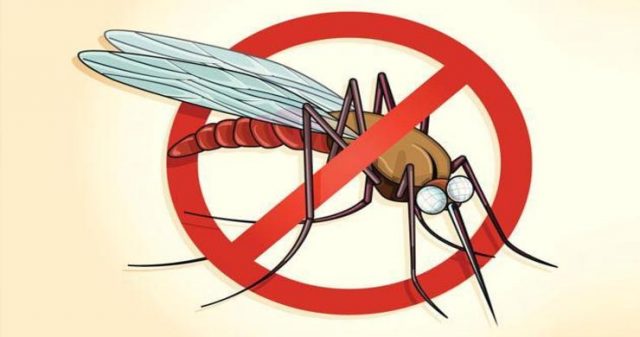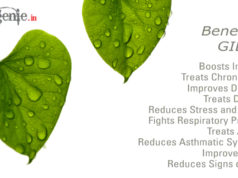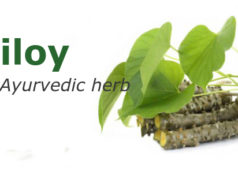“Prevention is better than cure”, As we all know the deadly parasite “Plasmodium” causing Malaria are transmitted by infected Anopheles mosquitoes; So the first step to stave off Malaria is to safe guard yourself from mosquito bites. It is estimated that between one and two million people worldwide die each year from mosquito-borne illnesses, the most common being malaria.These vectors of malaria generally bite between dusk and dawn, which means you are most vulnerable when you are sleeping. There are plenty of tricks for keeping biting bugs at bay, some of which are, drain any and all source of standing water as they are breeding place of mosquitoes. Wear light coloured, loose and full length clothes. Use mosquito repellents and to be specific use mosquito nets while sleeping.
But even after so much of precaution you may get bitten by infected Anopheles mosquito and contract Malaria. In that case you need not worry, just remember early diagnosis and treatment will help reduce further complications of the disease and prevent deaths. Depending on the victim’s age, health condition, severity of symptoms, type of malaria and whether the person is pregnant, the length of treatment and the types of drug will differ. While medicines are the first option to treat malaria, there are a few parasites that can survive in the liver or are resistant to medicines. And hence it is important to uproot them from the body. Treat yourself with following home remedies to get rid of it forever.
- Using Cinnamon: Cinnamon contains cinnamaldehyde which has mild anti-inflammatory and anti-spasmodic properties which help alleviate allied symptoms of malaria like loss of appetite, nausea, indigestion, cramps and spasms. Cinnamon provides relief from many allied symptoms of malaria. One teaspoon should be coarsely powdered and boiled in a glass of water with a pinch of pepper powder and honey. This can be used beneficially as a medicine in malaria.
- Using Grapefruit: Grapefruit extract contains natural quinine substance beneficial for curing malaria. Boil a quarter of grapefruit and strain its pulp. This can be taken up to twice a day in addition to the normal course of treatment.
- Using Fever Nut: The seeds of the fever nut plant are another effective remedy for malaria. They can be obtained from a herbal store and preserved in a phial for use when required. About six grams of these seeds should be given with a cup of water two hours before the expected onset of the paroxysm of fever, and a second dose should be given one hour after the attack. The paroxysm can thus be avoided but even if it occurs, the same procedure should be resorted to on that day and it will cut short the fever.
- Using Datura: The leaves of the datura plant are useful in the tertian type of malarial fever. About two and a half freshly-sprouted leaves of this plant should be made into a pill by rubbing them with jaggery and administered two hours before the onset of the paroxysm.
- Using Chirayata: The herb chirayata, botanically known as Swertia andrographis paniculata, is also beneficial in the treatment of intermittent malarial fevers as it is a natural analgesic. An infusion made by steeping 15gms of chirayata in 250 ml of hot water and add cloves, cinnamon to the water, can be given in doses of 15 to 30 ml. Using Lime and Lemon Lime and lemon are valuable in the quartan type of malarial fever. About three grams of lime should be dissolved in about 60 ml of water and the juice of one lemon added to it. This water should be taken before the onset of the fever.
- Using Alum: Alum is also useful in malaria. It is roasted over a hot plate and powdered. Half a teaspoon should be taken about four hours before the expected attack and half a teaspoon every two hours after it. This will give relief.
- Using Holy Basil: Juice of holy basil leaves bring down fever. Basil leaves contain two vital flavonoids named vicenin and orientin which protect damages to blood cells. In addition, holy basil leaves contains oils like cineol, estragole and linalool, which have vital anti bacterial properties. All these properties make it an effective home cure to alleviate symptoms of malaria. A decoction prepared by boiling leaves of holy basil and black pepper powder or powdered cardamom in half a liter of water is effective in bringing down body temperature. The decoction can be mixed with sugar to make it more palatable.
- Ginger: Add ginger and raisins to one glass of water and boil this into a decoction and can be consumed, after it cools down . Ginger root can be cut, a piece can be used with every 3 tablespoon of raisins.
- Using Fenugreek Seeds: Fenugreek seeds have antibiotic properties helpful in treating malaria. The seeds help in building immunity and fighting malaria, this can be included in the diet to treat malaria. Dry and powder the seeds and mix in water to drink. Drink this mix for a week to get rid of malaria.
- Cold Pack: Apply cold pack to keep the temperatures down. Take a long sheet of cloth and dip in water and wrap it around the whole body. Let it stay for at least ten minutes and this can be done three times a day to get rid of high temperatures.
- Warm water: Drink warm water frequently during the day as it cleanse the bowels system and keeps the body hydrated, which further helps in proper functioning of the body.
- Diet: The diet of the patient is very important during the treatment of malaria. Initially, the patient should go on fast of orange juice and water for a few days, till the fever is severe.
After the fever has subsided, the patient should take only fresh fruits for a few days. Milk can be added to this diet. Then the patient may start a well balance diet with emphasis on fresh fruits, raw vegetables and natural foods.
Avoid intake of processed foods, refined and canned foods, as they don’t have the necessary nutrients to keep the body healthy.
Note: These remedies are based on the principles of Ayurveda, the ancient Indian science of healing, and are completely natural, non-invasive, and can be prepared at home. However, it might be necessary to take medicines so always consult your doctor.






























































